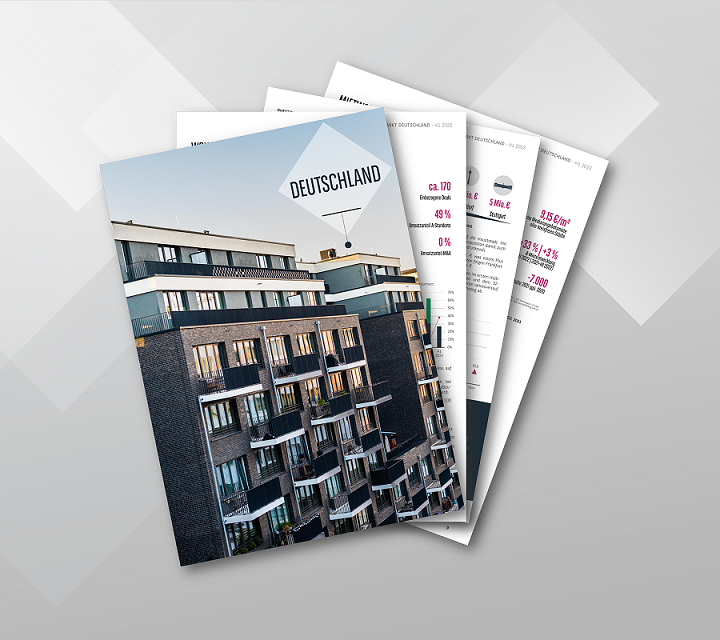Trends and insights of the residential market in Germany
The German residential market saw another year of consolidation in 2023. In addition to the significant rise in consumer prices, an unprecedented increase in construction costs and interest rates put the brakes not only on the investment markets but also on housing construction.
CONTENTS AT A GLANCE
-
Prologue [»]
-
Residential investment market Germany
-
Rental housing market Germany
-
Market data on major German cities
-
Factsheets on 109 cities

SHARP RISE IN INTEREST RATES AND CONSTRUCTION COSTS CONTINUES TO NEGATIVELY IMPACT RESIDENTIAL MARKET
-
The German residential market saw another year of consolidation in 2023. In addition to the significant rise in consumer prices, an unprecedented increase in construction costs and interest rates put the brakes not only on the investment markets but also on housing construction. As a result of a noticeable increase in financing costs, some projects were reassessed, delayed or abandoned. Higher refinancing costs have already led to a number of insolvencies among property developers.
-
The upward trend in housing prices has come to an end for the first time in years against the backdrop of a challenging market environment and in particular due to the increase in financing costs. Buyers and sellers have been finding it difficult to agree on a price that is acceptable to both sides, especially when it comes to existing properties. Many market participants continue to take a wait-and-see stance as a result. This situation can also be seen in the very low transaction volume of €5.2bn posted in 2023, which is around 72% below the long-term average.
-
Rents rose more sharply than housing prices for the first time in many years in view of ongoing high purchase prices and a very tight rental market. This can be attributed to solid demand combined with very low new-build construction activity. We expect this rent trend to continue in 2024 as well.
GERMANY’S POPULATION EXPECTED TO CONTINUE TO GROW UNTIL 2030
- Germany’s population has grown from 81.2 million (2014) to 84.4 million (2022), and this trend is accelerating with an increase in population of around 1.1 million recorded between 2021 and 2022. The population is expected to increase by around 170,000 people in 2023 compared to 2022 with many of these being refugees from Ukraine.
- Between 2023 and 2030, the population in Germany is likely to stabilise at a high level of just over 85 million (according to model calculations by the Pestel Institute).
